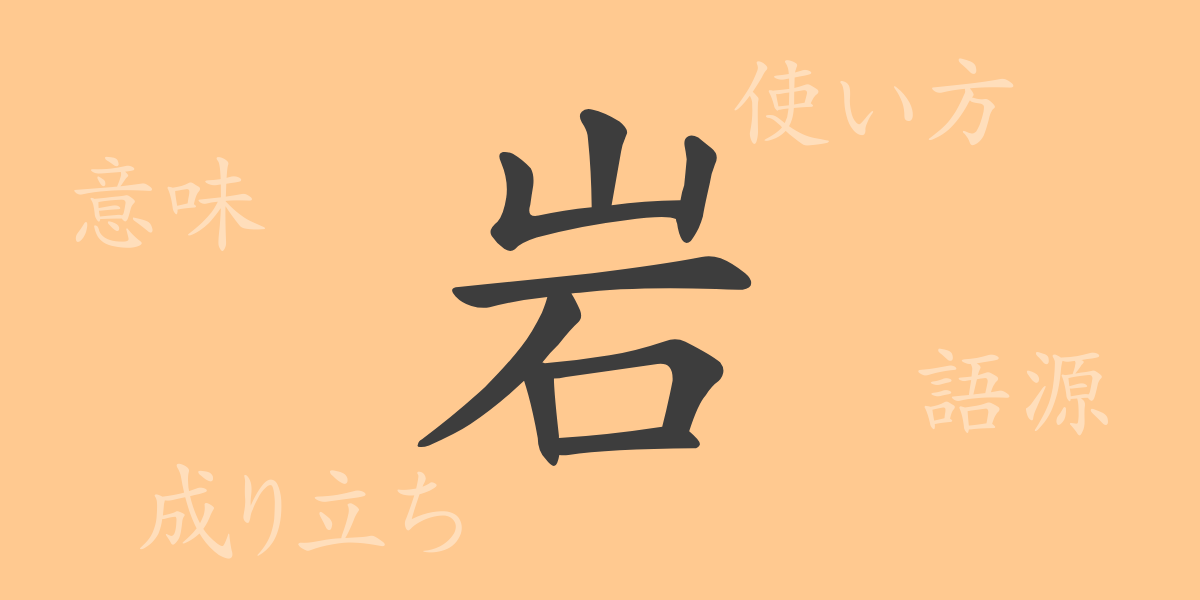Kanji, deeply rooted in Japanese culture and language, embodies a unique history and meaning in each character. In this article, we’ll focus on the commonly used kanji “岩”(Iwa) (Iwa), delving into its etymology and contemporary usage. Symbolizing the grandeur of nature, rocks are not only a tangible part of our lives but also an integral element in our language. Let’s explore the world of “岩”(Iwa) through this piece.
The Origin of 岩 (Etymology)
The kanji “岩”(Iwa) has its origins in ancient Chinese script. In oracle bone script, it was depicted as a large stone within a mountain. It later became established as a kanji and was introduced to Japan. Due to its solid nature, rocks have long been a symbol of reliability to people, influencing many aspects of culture and language.
The Meaning and Usage of 岩
The kanji “岩”(Iwa) refers to a hard, large stone found in nature. Geologically, there are various types such as igneous, sedimentary, and metamorphic rocks, each telling a story about Earth’s history and environmental changes. Furthermore, “岩”(Iwa) is also used metaphorically to represent firm beliefs or an unshakeable presence.
Readings, Number of Strokes, and Radical of 岩
The kanji “岩”(Iwa) has various readings in Japanese.
- Readings: The on’yomi is “Gan”, and the kun’yomi is “Iwa” .
- Number of strokes: 8 in total.
- Radical: Mountain radical (Yamahen) .
Phrases, Idioms, and Proverbs Using 岩 and Their Meanings
There are several phrases, idioms, and proverbs that include “岩”(Iwa):
- 岩盤浴 (Ganbanyoku): A health practice of relaxing on warmed rock beds.
- 岩壁 (Ganpeki): A towering wall of rock.
- 岩石心臓 (Gansekisinzou): A metaphor for a heart that is unmoved by emotions, calm and composed.
- 岩に嵌る苔 (Iwa-ni-ma-ru-koke): A proverb symbolizing a situation that remains unchanged for a long time.
Conclusion on 岩
The kanji “岩”(Iwa) symbolizes the robustness of nature and is used in a wide array of expressions within the Japanese language. Rocks, marking the history of our planet, continue to offer steadfast value in our lives both physically and linguistically. Hopefully, this article has allowed you to appreciate the profound allure of “岩.” When you encounter rocks in your daily life, may you now see them with a new perspective, appreciating the rich history and meaning they carry.

























